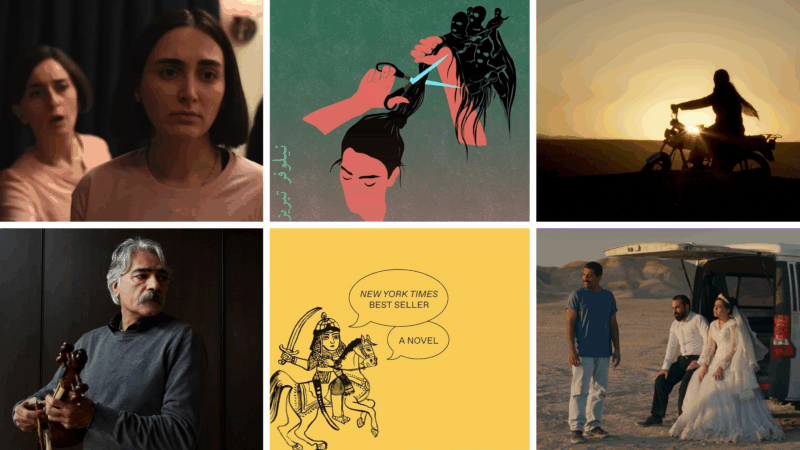‘The Life of Chuck’ might leave you brushing away tears — or scratching your head
The writer and director Mike Flanagan has become a well-regarded name in modern horror, known for his TV versions of The Haunting of Hill House and The Fall of the House of Usher. He’s also made a couple of Stephen King adaptations, including the films Gerald’s Game and Doctor Sleep, and he’s currently working on a new series version of Carrie.
Flanagan’s latest movie, The Life of Chuck, is both a continuation of this trend and a bit of a departure from it: It’s based on a 2020 King novella that draws on horror conventions without quite becoming a full-blown horror story. King’s work can be unabashedly sentimental as well as genuinely scary, and this movie is a mystery with a maudlin streak. It hopes you’ll be scratching your head at the beginning and brushing away tears by the end.
The Life of Chuck is divided into three acts, told in reverse chronological order. In the first act, a narrator, voiced by Nick Offerman, explains that the apocalypse is under way. The world is being devastated by fires, floods and earthquakes. Coastal parts of the U.S., including California, are collapsing into the ocean. The internet has shut down, seemingly for good, and humanity seems about ready to shut down as well.
A few folks are trying to hang on for as long as they can: Chiwetel Ejiofor plays Marty, a small-town schoolteacher, and Karen Gillan plays Felicia, a hospital nurse who has seen many of her patients die by suicide. Marty and Felicia were once married and remain good friends.
Even as everything around them crumbles, Marty and Felicia notice something strange. Wherever they look, they see an image of a man named Charles Krantz on billboards, TV screens and even windows, accompanied by the words “39 Great Years! Thanks Chuck!” It’s a surreal and unnerving sight; no one seems to have any idea who this Chuck guy is. But as the first act winds to a close, we meet Chuck. He’s played by Tom Hiddleston, and he’s dying of cancer.
What’s going on here? An answer begins to emerge in the second act, which takes place several months before the first one. The world isn’t ending yet; everything seems fine. Chuck, an accountant, who looks reasonably healthy, is out walking in a busy town square, where he encounters a busker, played by the drummer The Pocket Queen. An impromptu dance number follows, in which Chuck shows off some serious moves while a crowd looks on in amazement.
It’s great to watch Hiddleston cut loose, and Flanagan directs the scene with real verve. From there, the third and final act rewinds further back to Chuck’s childhood and teenage years, during which he’s raised in a quiet suburb by his grandparents. Mia Sara plays Chuck’s loving grandmother, who taught him how to dance, and Mark Hamill plays his soulful but practical-minded grandfather.
There’s a lot going on in this chapter: It’s a coming-of-age drama with elements of a haunted-house thriller, too. It’s also a solution to a mystery, as the connections between Chuck’s life and the end of the world become clear. Without revealing too much, let’s just say that King wants us to reflect on the idea that every human life is a universe unto itself. It’s no coincidence that, at the beginning of the movie, Marty is teaching his class the poem “Song of Myself,” in which Walt Whitman declared, “I contain multitudes.”
Throughout the movie, Flanagan makes clever use of recurring images, like a door at the top of a dim staircase, that help us piece the puzzle together in a uniquely cinematic way. In most other respects, though, The Life of Chuck feels hobbled by its extreme faithfulness to King’s novella, and its ultimately life-affirming message comes together in a surprisingly lifeless way.
At times the film does feel like an audiobook, as Offerman’s narrator keeps dumping exposition in scene after scene. For a story that seems to urge us to dance like no one’s watching, The Life of Chuck itself doesn’t have much in the way of spontaneity. The movie doesn’t ultimately contain multitudes; it just has a multitude of ways to keep hitting the same beat.
Voting nears to a close in Texas primary that may be crucial to control of the Senate
The GOP and Democratic primaries mark a potential litmus test for what direction base voters want their parties to go ahead of midterm elections this fall that will determine power in Congress.
Pregnant migrant girls are being sent to a Texas shelter flagged as medically risky
Government officials and advocates for the children worry the goal is to concentrate them in Texas, where abortion is banned.
The 2026 World Cup faces big challenges with only 100 days to go
Will Iran compete? Will violence in Mexico flare up? And what about funding for host cities in the U.S.? With only 100 days left before it beings, the 2026 World Cup in North America is facing a lot of uncertainty.
A glimpse of Iran, through the eyes of its artists and journalists
Understanding one of the world's oldest civilizations can't be achieved through a single film or book. But recent works of literature, journalism, music and film by Iranians are a powerful starting point.
Mitski comes undone
She may be indie rock's queen of precisely rendered emotion, but on Mitski's latest album, Nothing's About to Happen to Me, warped perspectives, questionable motives and possible hauntings abound.
This quiet epic is the top-grossing Japanese live action film of all time
The Oscar-nominated Kokuho tells a compelling story about friendship, the weight of history and the torturous road to becoming a star in Japan's Kabuki theater.







